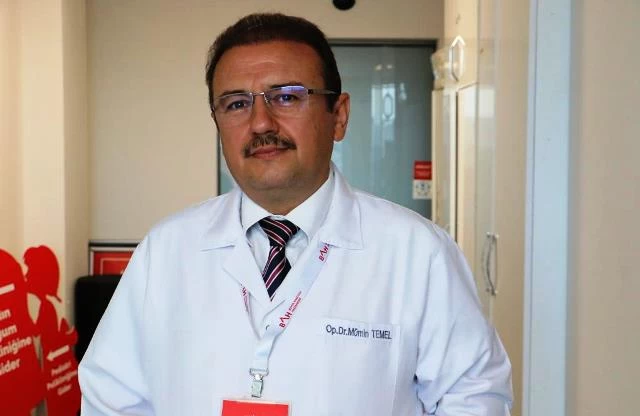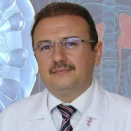
Prostate Cancer: Diagnosis, Treatment, and Prevention
- Prostate Cancer: Diagnosis, Treatment, and Prevention
- What Are the Causes and Risk Factors of Prostate Cancer?
- What Are the Symptoms of Prostate Cancer?
- How Is Prostate Cancer Diagnosed?
- How Is Prostate Cancer Treated?
- Preventing Prostate Cancer
Prostate cancer is one of the common cancer types in men, resulting from the uncontrolled growth of cells in the prostate gland. The primary functions of the prostate gland are partially contributing to urinary control, aiding in semen production, and activating the male hormone. In this article, we will focus on comprehensive information about the diagnosis, treatment, and prevention of prostate cancer.
What Are the Causes and Risk Factors of Prostate Cancer?
While the exact cause of prostate cancer is unknown, there are some risk factors:
- Age: The risk of prostate cancer increases with age. Men over the age of 50 are at higher risk.
- Family History: Family history can influence the risk of prostate cancer. Individuals with a family history of prostate cancer are at a higher risk.
- Race: African American and Caribbean men have a higher risk of prostate cancer compared to other races.
- Dietary Habits: A low-fiber, high-fat diet can increase the risk of prostate cancer. Additionally, those who consume ample fruits and vegetables have a lower risk.
What Are the Symptoms of Prostate Cancer?
In the early stages of prostate cancer, symptoms are often not present. However, as the cancer advances, the following symptoms may occur:
- Difficulty or pain during urination.
- Weak or interrupted urine flow.
- Frequent need to urinate, especially at night.
- Blood in urine or semen.
- Back, hip, or pelvic bone pain.
How Is Prostate Cancer Diagnosed?
The main methods used for diagnosing prostate cancer include:
- Digital Rectal Examination (DRE): A urologist examines the prostate gland using their finger via the rectum to assess its size, shape, and most importantly, its hardness. If the prostate is hard, it indicates a higher risk of cancer.
- PSA Test: Prostate-specific antigen (PSA) levels are measured through a blood test. Elevated PSA levels may indicate a risk of prostate cancer, although this test does not provide a definitive diagnosis.
- Prostate Biopsy: After suspicious findings, a doctor may confirm cancer through a prostate biopsy.

How Is Prostate Cancer Treated?
Prostate cancer treatment can be performed using different methods depending on the patient's cancer stage, extent of spread, age, overall health, and personal preferences. Prostate cancer treatment is often carried out by combining one or more methods. Here are the main treatment methods used for prostate cancer:
- Watchful Waiting (Active Surveillance):
- In cases of low-risk prostate cancer, immediate treatment may not be necessary due to the slow growth of the cancer.
- In such cases, the doctor monitors the patient regularly to assess whether the cancer progresses.
- If treatment is deemed necessary, other treatment options can be applied.
- Surgery (Prostatectomy):
- Prostatectomy involves the partial or complete removal of the prostate gland.
- Radical prostatectomy involves the complete removal of the prostate gland. This surgery is performed before cancer extends beyond the prostate boundaries.
- Minimally invasive robotic surgery is also a common option.
- Radiation Therapy:
- Radiation therapy aims to destroy cancer cells using high-energy rays.
- There are two main types: External beam radiation therapy and internal radiation therapy (brachytherapy).
- Radiation therapy is used in cases where surgery is not feasible or after surgery when radiation therapy is required.
- Hormone Therapy:
- Hormone therapy is used to stop or slow down the growth of prostate cancer cells.
- Since prostate cancer is fueled by the male sex hormone testosterone, this treatment aims to inhibit hormone production.
- Chemotherapy:
- Chemotherapy is used in advanced-stage prostate cancer treatment.
- Medications are used to destroy or slow the growth of cancer cells.
- It is generally chosen when other treatments are ineffective or when cancer has spread.
- Targeted Therapy:
- Targeted therapies involve using drugs that target specific molecular pathways.
- They are particularly used in advanced-stage prostate cancer treatment.
The choice of prostate cancer treatment is a collaborative decision between the patient and the doctor. Each treatment method has its own advantages and risks. Treatment options can vary depending on the patient's age, overall health, cancer stage, and personal preferences. Therefore, when diagnosed with prostate cancer, it is important for the patient to have a detailed discussion with a urology specialist or oncologist to gain knowledge about treatment options.
Preventing Prostate Cancer
To prevent prostate cancer, it is important to follow these steps:
- Regular Medical Check-ups: As age advances, regular doctor visits and PSA tests are important.
- Healthy Diet: A low-fat, high-fiber diet can reduce the risk of prostate cancer.
- Physical Activity: Maintaining an active lifestyle can lower the risk of cancer.
- Knowing Family History: Knowing the family history of prostate cancer can help determine the risk.
When prostate cancer is detected early and treated appropriately, the chances of success are quite high. However, gaining more knowledge about prostate cancer and regular doctor check-ups with urology specialists can improve the quality of life and increase the curability of the disease, especially in its early stages.






